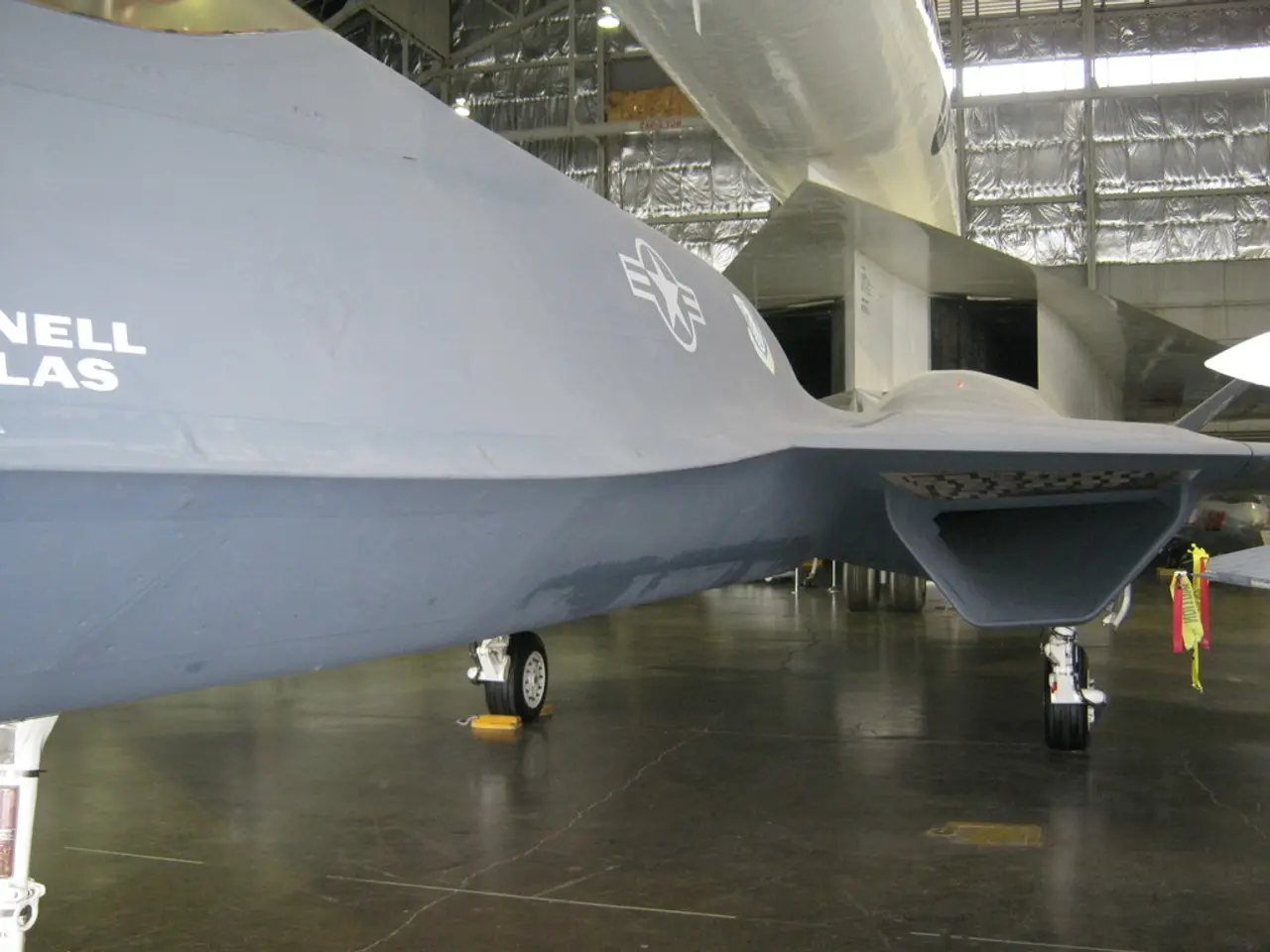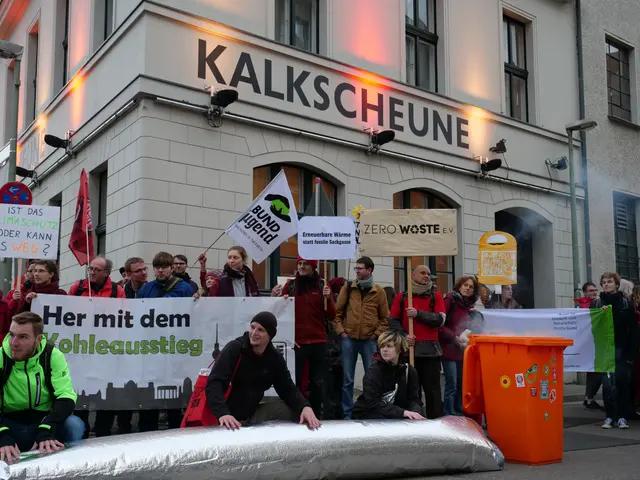Statement Ensuring Protected Conditions
Airbus, the European aerospace giant, has outlined a range of significant risks that could impact its business operations in the coming months. These risks are detailed in the notes to the company's Unaudited Condensed Interim IFRS Consolidated Financial Statements for the three-month period ended 30 June 2025.
Geopolitical and tariff uncertainties are among the key risks facing Airbus. The company operates amid complex geopolitical tensions and uncertain global tariff environments, particularly following US tariff announcements in April 2025. This has created exposure mainly through cost increases on sub-assemblies imported to Final Assembly Lines in the US and China. The full financial impact remains difficult to determine currently, but Airbus is actively assessing and aiming to mitigate these risks via regulatory mechanisms, logistical optimizations, and a strong diversified backlog.
Supply chain disruptions also pose a significant operational risk. Persistent supply chain disruptions continue to affect production schedules, notably shortages of engines impacting A320 Family deliveries. Airbus is focusing on production scalability and managing supply constraints to meet delivery targets.
Currency and financial risks are another concern for Airbus. Adjustments related to dollar working capital mismatch and balance sheet revaluation negatively impacted results in the period, reflecting risks from currency volatility and timing differences between transactions and deliveries.
Airbus' acquisition of Infodas, a cybersecurity and IT company, reflects strategic moves but also introduces integration and market risks within a rapidly evolving cyber threat landscape that is critical to aerospace and defense systems. Operational risks related to workforce and compliance also present challenges, with costs linked to workforce adaptation plans in Defence & Space and other expenses including compliance, M&A activities, and work package stabilization (e.g., with Spirit AeroSystems) highlighting ongoing operational risks that can impact profitability and operational continuity.
Macroeconomic and market conditions also pose risks to Airbus. The company faces risks from changes in economic cycles, political conditions, and market demand such as air traffic growth which affects commercial aircraft orders and aftermarket services. Recent policy changes in key markets like the US have slightly dampened growth forecasts, posing a demand risk.
In summary, Airbus's key business risks involve geopolitical and tariff uncertainties, supply chain disruptions, currency and financial risks, integration and cybersecurity challenges, workforce and compliance costs, and macroeconomic and market demand fluctuations—all of which are explicitly noted in the financial statements and related disclosures as significant factors the company is managing.
For a more comprehensive understanding of these risks and Airbus' financial performance, readers are encouraged to refer to the Unaudited Condensed Interim IFRS Consolidated Financial Statements for the three-month period ended 30 June 2025, published on 30 July 2025. Airbus does not undertake to publicly revise or update any forward-looking statement in light of new information, future events, or otherwise. For factors that could cause future results to differ from forward-looking statements, readers are advised to refer to Airbus' most recent annual reports, including the Report of the Board of Directors published on 20 February 2025.
- In the realm of science and technology, Airbus' acquisition of Infodas, a cybersecurity and IT company, marks a strategic move, yet introduces integration and market risks within a rapidly evolving cyber threat landscape that is critical to aerospace and defense systems.
- The company's operations are deeply immersed in the environment-altering climate-change discussions, as the industry tries to minimize its carbon footprint and comply with stringent environmental regulations.
- The finance and business sector plays a crucial role in addressing the risks faced by Airbus, as the company constantly assesses and mitigates financial impacts from geopolitical uncertainties, currency volatility, and tariff environments.
- Amid a backdrop of war-and-conflicts and politics, Airbus' business must adhere to strict security protocols to safeguard sensitive industry information and ensure operational continuity.
- In the general-news section, coverage often features discussions on Airbus' efforts to meet delivery targets despite persistent supply chain disruptions, notably shortages of engines impacting A320 Family deliveries.
- Crime-and-justice reports sometimes focus on the operational risks related to workforce and compliance, with costs linked to workforce adaptation plans and other expenses posing challenges for Airbus' profitability and continuity.








